In the past, hunting in Morocco was a profession on which a large number of people depended. But with French colonialism, hunting turned into a sport of its own.
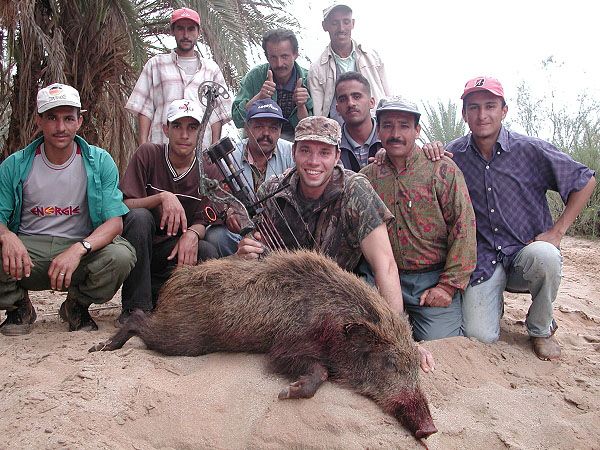
The purpose of land hunting, according to its legal arsenal, is to establish an ecological balance in nature and to reduce the large increase of game and beast. All animals that pose a threat to the environment when breeding are threatened. For this purpose, Morocco has developed a legal guide to monitoring land-sniper activity with 26 laws. The High Commission for Water, Forestry and Combating Desertification also organizes the sniping operation in Morocco, thanks to its establishment of the Supreme Council of Fishing, which determines the hunting seasons and the places allocated for this sport activity in order to avoid any abuses. The Council, in order to encourage the continuation of sniper activity, launches the hatch in the reserves to enable Al-Wahish to reproduce. The Council also prohibits sniping in the seasons of the breeding of the bush and the beast.
.jpg)
If snorkel snails, wild rabbits and other birds are easy, the wild boar sniper is considered to be difficult and dangerous, requiring a set of precautionary measures to avoid any possible attack from the pig on the hunter.
So if you want to become a sniper in Morocco, you have to comply with a number of conditions and criteria determined by law, most notably the passing of the examination of the sniper license. If the Moroccan legislator has set up an arsenal of important laws to codify the sniping process, the legislator himself has stipulated that it is necessary to engage in special snorkeling associations, including the Moroccan Royal University of Hunting. In this regard, the director of the Moroccan University of Hunting, Gilali Shafiq, stressed that the latter is a strategic partner of the Moroccan state to maintain the environmental balance through the rationing mechanism. He added that there is a great demand for this sport, pointing out that the number of associations involved in the university more than 1000 distributed in 14 regions in the Kingdom.
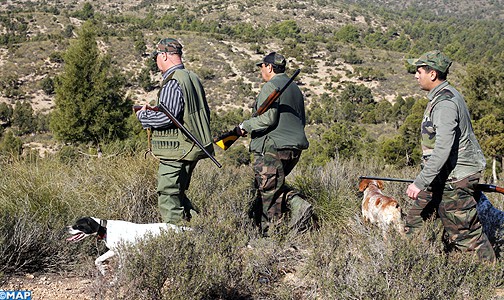
The wild boar
The wild boar sniper operation in Morocco is called "defamation". According to Hisham Mashtrai, the head of the Casablanca sniper association, the process of circumvention means taking notice of something to catch and catch. Mashtray adds that "the method varies from one region to another and depending on where the taxing will take place." He explains that the pig sniper in the forest is different from a sniper in a closed place such as a farm. In addition, the weapon used in the wild boar sniper is stronger than the sniper's weapon. It requires the use of a "five-pointed" weapon and bullets that exceed a kilometer range, which is considered dangerous. Therefore, several precautionary measures must be taken, according to Matrahi, including the identification of an official in each case who distributes snipers and places them in specific locations.
According to the information, although quarantine operations are carried out during the sniper period determined by the Supreme Council of Sniping, there are emergency evacuations based on the complaints made by a number of residents of some areas due to the damage caused by the repeated attack and breeding of the pig that threatens their agricultural crop.

Clearance in mountainous and open places
According to information from a number of fishers, the regulation of seabed in mountainous and open areas is often less dangerous than sniping in agricultural land. In mountainous and open places, the sniper puts snipers against the side of the pig. Before the start of the sniping process, individuals who know the area are well-groomed (shouting loudly to catch the attention of the "horsemen" and leaving the hiding place). This process disturbs the pig and irritates it to escape the direction of the sound. Thus, he is confronted directly with snipers who shoot him. The sniper must not exceed 30 degrees or hit the colleague standing in a straight line with him. The snipers agree that it is strictly forbidden to snatch the pig, which exceeds one of them, as a female pig if she is a fugitive and behind her young.
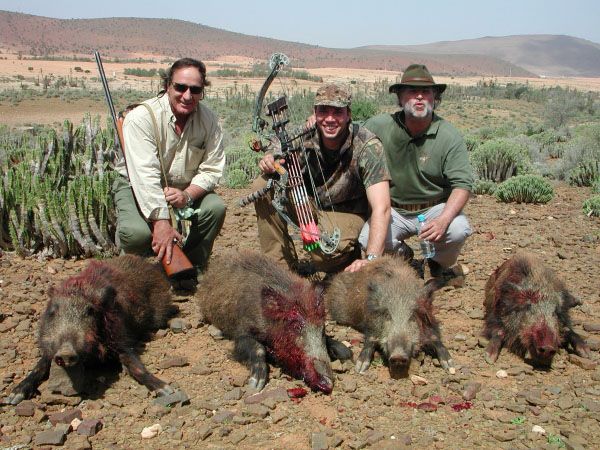
Induction in agricultural land
This process is more dangerous because of the presence of trees within agricultural land, making it difficult to hit the target quickly. According to Jamal Bockelman, head of the Small Atlas Fishing Association, the sniping process takes place on farms according to a prior agreement between the owner and the fishermen, in order to fight the pig who is tampering with the farm's crop. Bockelman explains that the risk of sniping on farms is that fishermen choose to stand behind the trees to monitor the target. The wild boar is defrosted from behind them and therefore its flight is to their side, and when passing by them, it must be avoided with caution. A series of fatal accidents occurred in such situations because the pig barks the fisherman who fired without concentration, and may even look at the trajectory and hit the rear.

"The damage caused by the pig has pushed a number of farmers in the Tafraout region, which is the capital of the small Atlas Mountains to the Red Sea," Bockelman said. "In the area where the wild boar is located, On the cultivation of their lands. " Bockelman is similar to the pig attack on crops as a plague. A number of residents of the Ait Omzil roundabout near Agadir have decided not to leave their homes after the Maghrib prayer, which coincides with the period of the pig leaving its hiding place.

Fate of the pig after the sniping trip
A large number of people hunting for wild boar wonder about the fate of the prey caught. "After the end of each sniping operation, the Water and Forestry Commission and the fight against desertification are responsible for collecting and burning wild pigs, considering that eating them is haraam, and that Moroccan society is Muslim," a fisherman said on condition of anonymity.
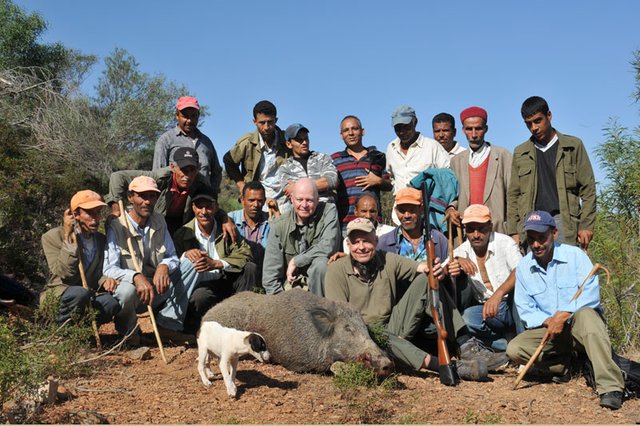
The Islamic religion prohibits eating pork. Consequently, Moroccan society does not favor wild pork, although it differs from domestic or domestic pork. But according to the fisherman himself, people in some of the mountainous areas, which he refused to disclose, consider eating wild pork as illegal. This is justified by the belief that wild boar is different from pink in terms of physical structure and that it takes care of forests and fields.
The sniping team sometimes includes foreigners who do not mind the consumption of wild boar. They are quick to remove the guts from the hunted pig to avoid any damage to his flesh, and divide it into pieces after abandoning the head and the menus. On the other hand, Moroccan snipers sometimes take the representatives of the High Commission for Water, Forestry and Combating Desertification by hiding some of the hunted pigs for later sale to foreigners living in Morocco or having restaurants frequented by tourists.
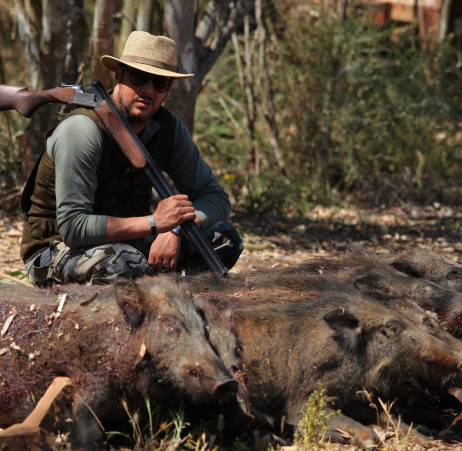
follow me @hafidg to discover more wonderful articles from moroccan towns
This post recieved an upvote from minnowpond. If you would like to recieve upvotes from minnowpond on all your posts, simply FOLLOW @minnowpond
Downvoting a post can decrease pending rewards and make it less visible. Common reasons:
Submit